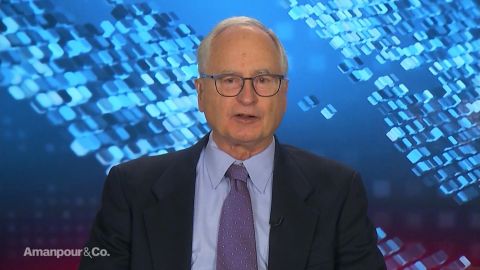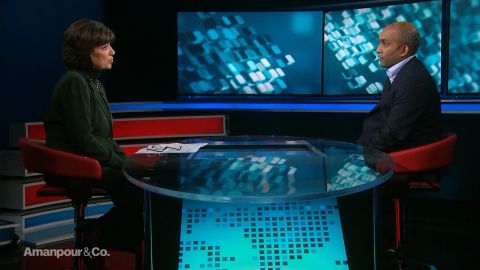Read Transcript EXPAND
BUTTERFIELD: I was covering crime in criminal justice for the “New York Times” for about 15 years and I kept reading about these studies which have been done in recent years, showing that crime tends to run in the family. And some of them, the proportions are incredibly strong as one of the studies which was done by some academics from the University of Cambridge done in South London really from the — from 1961 and 2001. And they found that 5 percent of families account for half of all crime and 10 percent of families account for two-thirds of all crime. And they’ve been very, very similar studies done around the United States in different cities. Always coming back with basically the same findings.
AMANPOUR: So, let’s just talk about how you focus on this family, the Bogle family, and that there are dozens of criminals in that one family. Tell me about the family.
BUTTERFIELD: Yes. So, this — I found the family really by happenstance. A friend of mine who worked in the Oregon Department of Corrections, in the Oregon prisons, mentioned to me that he thought — he knew of a White family that had — what he thought were six members in prison and he said if I’d come out to Oregon, because I was then living on the East Coast, I could interview some of the members of the family in prison. And the “New York Times” agreed to let me do that. And — but what we didn’t know at that time was, it wasn’t six members of the family who are in prison, it’s really six-zero, 60 members of the family who have been, at one time or another, in prison. The first of these — the members of this family, and their name is Bogle, the first — I met this young man, Tracey Bogle, who was serving a 16-year prison sentence. And he said, “What you’re raised with you grow to become. There is no escape.” And that’s — that for me is — at the heart of it, it’s imitation. Because the members of this family, when they grew up, their fathers and their mothers would take them out to commit crimes with them and saw themselves as a crime family and they thought it brought them great honor.
AMANPOUR: So, let me let me just dig down into this. You mentioned Tracey Bogle. His precise quote in your book is, “If I had been raised in a family of doctors, I’d probably be a doctor. But I was raised in a family of outlaws who hated the law.” So, that’s kind of, you know what, you say, “I was raised to be a criminal.” But what I think he’s really addressing is one of the issues you talk about, that taking children to visit relatives in prison or in jail basically normalizes or glamorizes the experience. And I’m just going to quote some from your book, “No one recognized at the time, as some criminologist did later, that taking a child to visit his older brother also father in prison could be endangering the child, making him think that life in prison is normal or even glamorous not dangerous and frightening.”
About This Episode EXPAND
Christiane Amanpour interviews Sanj Srikanthan, Executive Director of the International Rescue Committee UK, about Saudi Crown Prince MBS’s role in the war in Yemen and author Fox Butterfield about his new book on the influence of family on crime. Michel Martin interviews Jahana Hayes, 2016 National Teacher of the Year and a Democratic Nominee for U.S. Congress.
LEARN MORE


